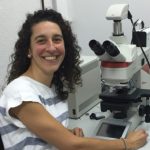How agroecological crops managing results in soil regeneration: Will be possible in the presence of volcanic ashes?


Over recent years, the move to more sustainable agricultural forms has gained momentum. Agroecological management offers rewards in different areas: soil regeneration, favourable microbiology and plant physiology, improved crop yields and -perhaps most importantly- a reduction of the carbon and water footprints. Our research group is devoted to decipher the underlying mechanisms leading to these improvements of a particular biofertilizer that is currently being widely applied on the island of La Palma. This biofertilizer is based on a compost tea using animal farm by-products which reduce the use of external inputs. Empirically, this technique has shown a remarkable track record of success. Apart from its high returns, the attractiveness of this model is that it boosts the circular economy where the by-products are converted into a ready to use high quality biofertilizer. From the scientific point of view, our analysis demonstrates improved soil composition, an increase in population of beneficial microorganisms, greater crop performance, and resiliency to plagues and climate change. The recent volcano eruption happened in La Palma is challenging the well-stablished crops (such as banana, avocado, pitahaya, among others) to coexist with the presence of volcanic ashes. Will be able the agroecological model established in La Palma cope with it?
